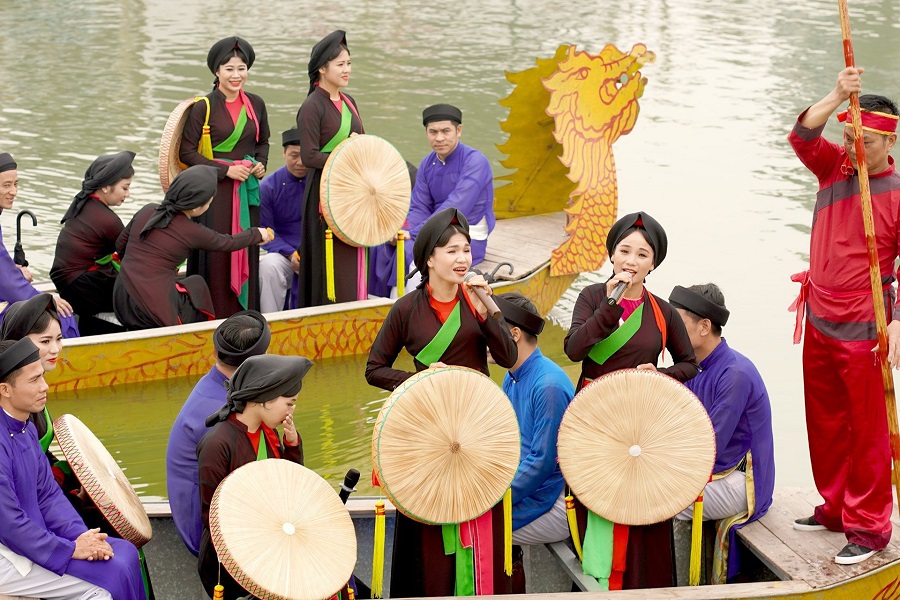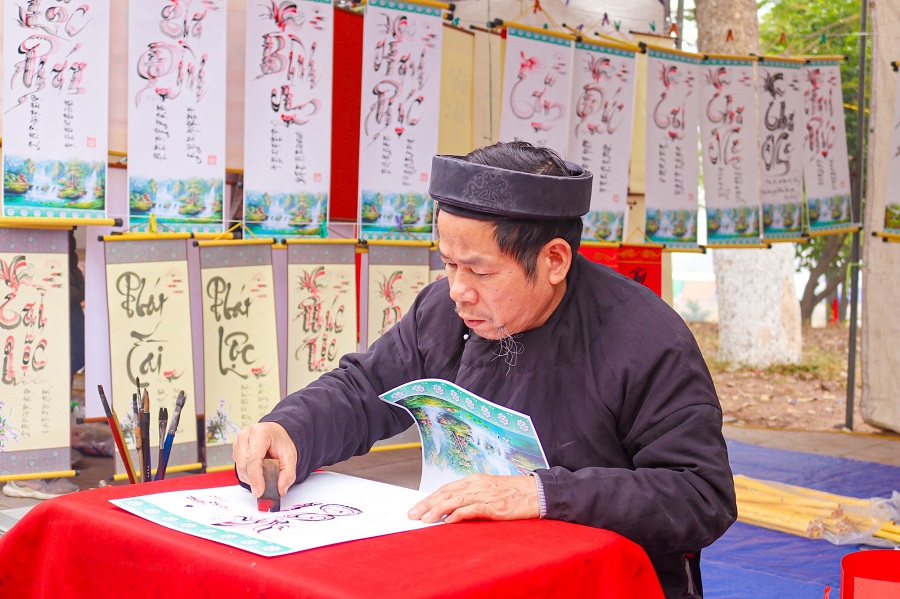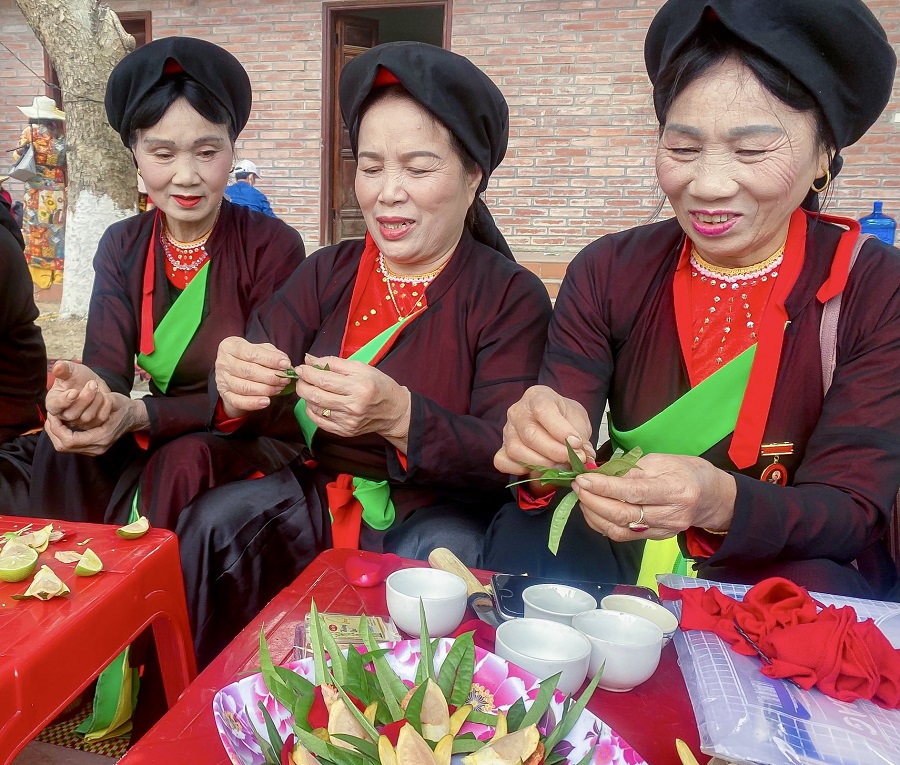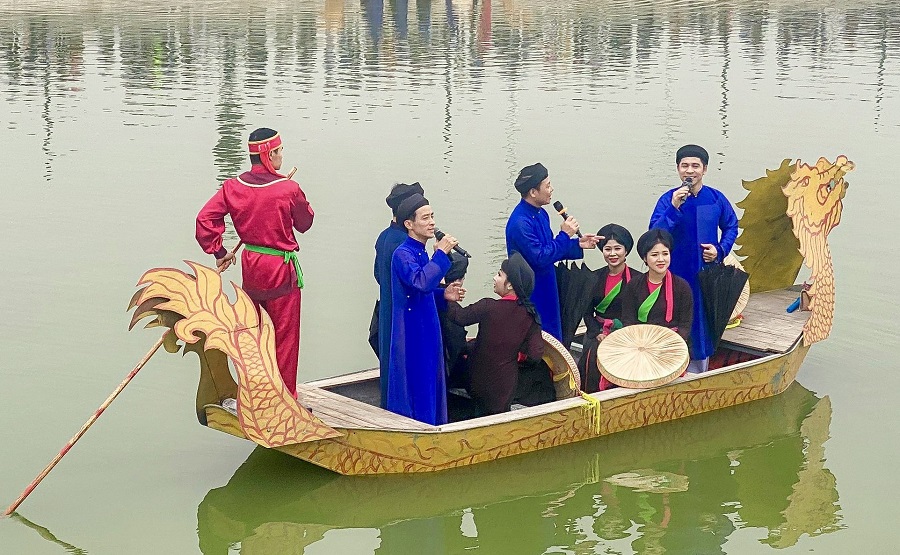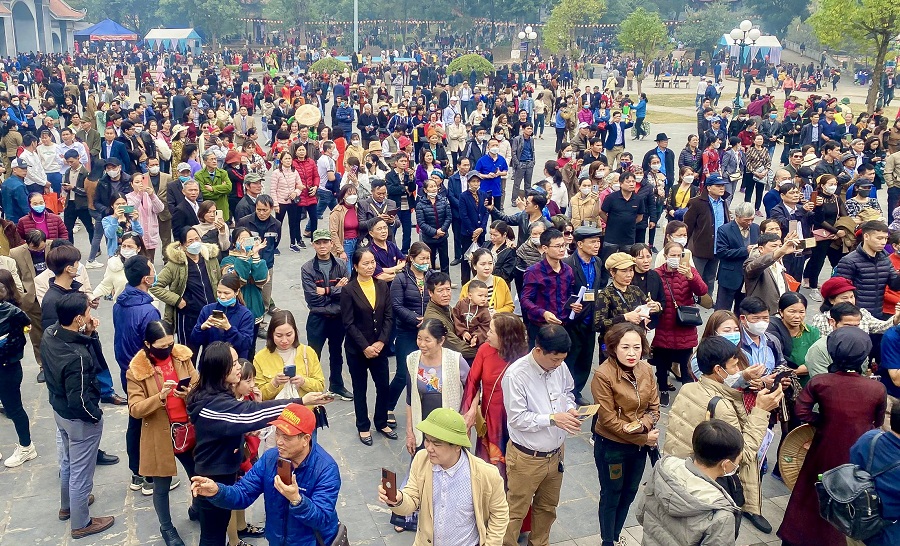Biggest northern Vietnam festival attracts tens of thousands visitors
After three consecutive years of hiatus due to the Covid-19 pandemic, the Lim Festival is back in full swing, attracting thousands of visitors to the small neighboring province of Hanoi.
Lim Festival in the northern province of Bac Ninh, home to UNESCO-recognized Quan ho (love duet) singing, is welcoming dozens of thousands of visitors.
Held in Tien Du District, about 30km from downtown Hanoi, the festival takes place for two or three days with the main day falling on the 13th day of the first Lunar month [February 3 this year].
The most vibrant festival in northern Vietnam
| The Quan ho folk performance in a boat, Lim Festival 2023. Photo: Duy Khanh |
The festival includes a procession, rituals, and love duet singing, among others. The activities are held in communal houses, temples, and pagodas in Noi Due, Lien Bao, and Lim Town villages.
The Lim Festival, one of the largest spring festivals in northern Vietnam, is a cultural feature of Bac Ninh.
Visitors come to enjoy the festival and watch performances by "lien anh" or male singers and "lien chi" or female singers. All the singers are local farmers, who sing on stages set up in pagodas, hills, and boats.
In addition to traditional love duets, various popular games such as bamboo swinging, wrestling, cockfighting, clay pot breaking, human chess, and blind man's bluff are also held, along with calligraphy and poetry exhibits.
| Calligraphy demonstration at Lim Festival 2023. Photo: toquoc.vn |
These performances and games are said to reflect the cultural identity of the land of Kinh Bac, the birthplace of the prestigious Ly Dynasty (1010-1225) and Buddhism in Vietnam.
The opening date of the festival is related to a legend, according to which a native woman from the eastern village of Noi Due Commune named Ba Mu became a Buddhist nun at Lim Pagoda and thereafter reached enlightenment. She was credited with helping the villagers overcome a severe drought.
In addition, a culinary area and a firework show also take place around Van Tuong Lake.
An Intangible Cultural Heritage of Humanity
Dating back over 500 years ago, Quan ho folk singing is inscribed by UNESCO as an Intangible Cultural Heritage of Humanity in 2009. It is said to be a living historical record of the daily life of Vietnamese people.
| The custom of inviting betel to festival-goers is available at Lim Festival. Photo: Duy Khanh |
According to UNESCO, there are more than 400 song lyrics, sung in 213 different melodic variations, that express the emotional states of longing and sadness for separation, and the happiness of meeting lovers, but custom forbids the singing couple to marry.
Attendees also flock to the Lim Festival to enjoy the weaving contest of girls from the Noi Due region, who weave and sing Quan ho songs at the same time.
Like other religious festivals, the Lim Festival goes through ritual stages, from the procession to the worship ceremony, and includes other activities.
Spring festivals are held for people to relax after a year of hard work. Both Vietnamese and foreign tourists come to festivals not only to have fun but also to learn about the history of a particular village or region, its culture, and people as well as their spiritual life and customs.
Among the hundreds of traditional festivals held near Hanoi during the festive month of February, Lim Festival is considered the most joyful and worth visiting.
| The Quan ho's "lien anh" or male singers are showing their voices at Lim Festival. Photo: Duy Khanh |
| Visitors eagerly join Lim Festival on February 2. Photo: Duy Khanh |

